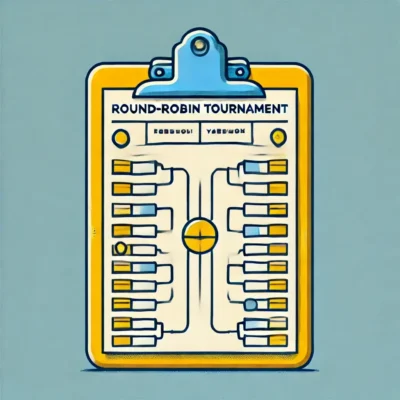
Venue managers often struggle to choose between SMS and email for guest communication. It’s tricky because guests often have different personal preferences and venues have different messages they need to share.
SMS is quick and good for urgent updates, while email can hold more info. Venues need to think about the message, how urgent it is, and who their guests are. Technology changes, too, which can add to the challenge of communicating with guests.
Figuring out whether to use SMS or email means knowing their strengths and being flexible with how they’re used.
In this article, we’ll cover the strengths of both SMS and email communication and help you determine which one is the best for your venue.
What are the benefits and weaknesses of using SMS to contact guests?
Incorporating SMS into your guest communication strategy can be incredibly effective for delivering quick updates and encouraging immediate responses.
However, its limitations in terms of content and multimedia should be carefully considered based on the type of messages you need to convey.
Benefits
- Immediacy: SMS messages have a remarkably high open rate and are usually read within minutes of being received, making them perfect for delivering time-sensitive information or urgent updates in a timely and effective manner.SMS can be more immediate as most people carry their mobile phones with them at all times and tend to read text messages promptly.
- Conciseness: The limited character count forces you to communicate succinctly, ensuring your message is not only clear and to the point, but also easy to comprehend and act upon, catering to the fast-paced nature of modern communication.
- High Engagement: SMS messages are more likely to be interacted with due to their direct and non-intrusive nature. They effortlessly capture recipients’ attention, encouraging quick responses and prompt actions that can significantly boost engagement rates. When using SMS, you can expect a higher open rate compared to email. People tend to check their text messages more frequently than their emails, so your message is more likely to be seen in a timely manner.
- Broad Reach: With almost all mobile phones being SMS-enabled, you can ensure that your message reaches a wide and diverse audience without the need for a specific app or an internet connection. This inclusivity is particularly valuable for reaching guests with varying levels of technological proficiency.
- Opt-in Engagement: By virtue of recipients needing to opt-in to receive SMS messages, you’re not only adhering to permission-based marketing but also communicating with an audience that has already expressed interest in your content, increasing the likelihood of positive engagement.
Weaknesses
- Limited Content: The character limit of SMS messages restricts the amount of information you can convey within a single message. This limitation can be a challenge when you need to provide detailed instructions or comprehensive explanations, potentially necessitating multiple messages to convey all the necessary information effectively. You need to be concise and straight to the point with your message and may limit the amount of information you can convey compared to an email.
- Lack of Visuals: SMS is inherently text-based, which means you cannot incorporate images, videos, or other multimedia elements that could enhance the visual appeal and impact of your message. This limitation might hinder your ability to convey complex ideas or evoke strong emotions solely through text.
- Spam Concerns: If not used thoughtfully, SMS messages can easily be perceived as spam, leading to recipients feeling overwhelmed, annoyed, or even unsubscribing from your communication list. Striking the right balance between informative and invasive is crucial to maintaining a positive reputation.
- Privacy Concerns: Sharing personal information or sensitive details over SMS can raise privacy concerns, especially when dealing with matters that require a higher level of security. Ensuring that you handle sensitive information appropriately and adhere to privacy regulations is essential to maintain trust.
- Varied Devices: Different devices and mobile platforms may display SMS messages with varying formatting, potentially affecting the visual appeal and overall understanding of your message. This variability underscores the importance of crafting messages that remain effective across different devices and screen sizes.
What are the benefits and weaknesses of using email to contact guests?
Email communication offers a platform for rich and detailed engagement with guests, allowing you to deliver content that informs, engages, and captivates. However, the challenges of deliverability, inbox competition, and varying reading habits underscore the importance of crafting email messages that not only stand out but also adapt well to different devices and recipient behaviours.
Benefits
- Comprehensive Communication: Email provides ample space to convey detailed information, making it suitable for sharing comprehensive event details, itineraries, and in-depth updates that require more explanation as there are no character restrictions. Email also provides a platform for longer messages, attachments, and formatting options such as images or hyperlinks. It is ideal for conveying detailed information or sending important documents to guests.
- Visual Appeal: With the ability to incorporate images, graphics, and multimedia content, email allows for visually engaging communication that can captivate recipients and convey information in a more dynamic manner. Emails may have lower open rates but offer better opportunities for customization and personalization. They allow businesses to create visually appealing email templates, use personalised greetings, and include branding elements.
- Personalisation: Email platforms offer advanced personalization options, enabling you to address recipients by name and tailor content based on their preferences, enhancing the sense of connection and relevance.
- Trackable Interactions: Email analytics provide insights into recipient behaviour, such as open rates, click-through rates, and engagement patterns. You can analyse past data or conduct surveys to determine which method has a higher response rate from guests. This data can inform your strategies and help refine your communication approach over time. It allows for easier organisation and archiving of messages, making it convenient for keeping track of important information.
- Versatility: Email serves various purposes, from event invitations and promotional offers to informative newsletters and post-event follow-ups, making it a versatile tool for different stages of guest engagement. It accommodates both brief updates and more extensive communications.
Weaknesses
- Potential for Overwhelm: Email inboxes can quickly become cluttered, leading recipients to overlook or ignore messages. Standing out amidst the influx of emails requires crafting compelling subject lines and content that immediately piques their interest.
- Deliverability Concerns: Emails may end up in spam folders due to aggressive filtering or sender reputation issues, reducing the chances of your messages reaching the intended audience. Maintaining good sender practices is vital to ensure deliverability. It’s important to note that some people may have strict spam filters or overflowing inboxes, which could result in your email being missed or sent directly to junk folders. Therefore, it’s crucial to ensure your emails are personalized and relevant so they don’t get marked as spam by recipients.
- Delayed Response: Unlike SMS, emails may not be read immediately, potentially leading to delayed responses or actions, which can be problematic for time-sensitive updates that require prompt attention.
- Dependent on Internet Access: Recipients need an internet connection to access their emails, which might be a limitation for guests in areas with poor connectivity or those who prefer offline interactions for various reasons.
- Mobile Formatting Challenges: Email formatting may not translate well to mobile devices, leading to readability and usability issues. Ensuring responsive design that adapts seamlessly to different screen sizes and orientations is essential for a positive mobile experience.
Which is better for my venue; SMS or email?
Deciding between SMS and email for your venue’s communication depends on various factors. Consider the urgency and nature of your messages. If you need to send quick updates or time-sensitive information, SMS might be better due to its high open rate and immediate delivery.
For more detailed content, event invitations, or promotions, email could be preferable, as it allows for visuals and comprehensive information. Think about your audience’s preferences and demographics – younger audiences might prefer SMS, while older ones might lean towards email. You also have to ensure that guests have given consent to be contacted via either SMS or email.
Moreover, your communication goals matter. If you aim for quick responses or actions, SMS is effective. For nurturing relationships and delivering in-depth content, email shines. Also, consider technical aspects. SMS works on all mobile devices, while emails require an internet connection. The cost of sending SMS messages can vary depending on the provider’s pricing plans, while emails are generally free unless using premium services or exceeding storage limits. Evaluate the cost associated with sending SMS messages versus emails. Consider factors such as message length, delivery fees, and potential charges for recipients.
In some cases, combining both SMS and email in an integrated strategy might be optimal. SMS can deliver urgent updates while email provides follow-up details. Ultimately, testing and analysing the response rates of each method can help you determine what works best for your venue’s unique needs.
Experts say that both SMS and email can be effective ways to contact guests, but it ultimately depends on the specific situation and the preferences of your target audience.
How can I effectively boost communication for my venue?
VenueSumo’s software is a fantastic tool for venues that want to improve how they communicate with guests.
- It helps you learn what guests think through surveys about your venue’s service.
- With built-in email and text messaging, you can easily keep guests updated.
- The software reminds guests about your venue based on their past visits and securely stores their information.
- You can make emails and PDFs look just how you want, and it works well with other marketing tools.
- If something goes wrong, you can say sorry with a special voucher.
- It also helps you do things faster with automated marketing and lets you see how guests react to surveys in real-time.
With VenueSumo’s CRM functionality, guest communication becomes easy and effective, combining technology with hospitality.
Find out more and get your demo today!


